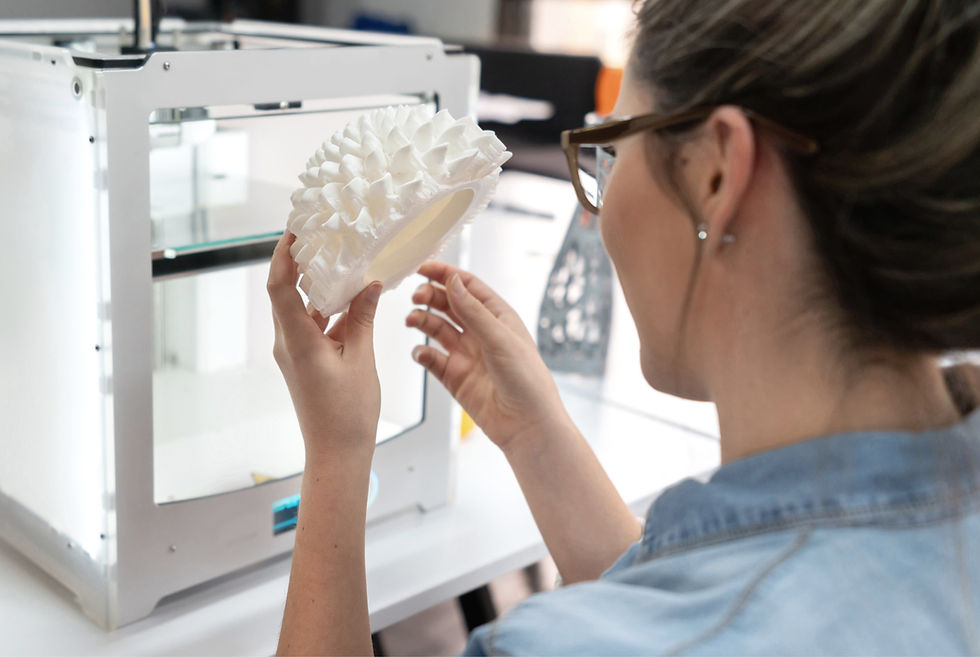100 Podcast Episodes On The History Of Computing
- Charles Edge

- Oct 6, 2020
- 4 min read
Updated: Oct 29, 2020

The digitization of the world is an amazing, crazy, sometimes boring, and often surprising process of often seemingly disconnected technologies, philosophies and scientific advances that came together to form a whole far greater than those parts. Digitization has changed humanity in ways we could never have expected and somehow continues to be stifled in ways that go back hundreds of years. From raw scientific discoveries and rational thinking to very specific engineering challenges, the process of automating our lives and getting more and more visibility into the world around us continues - just as progress does.
This is what I was curious about when I started a podcast on The History Of Computing. The first episode of this podcast went up on July 7th 2019. Over a year later, we’ve managed to cover a lot of ground, but we’re just getting started. We just hit 100 episodes. And so far, my favorite was on Mavis Beacon Teaches Typing.
They may seem disconnected at times, but they’re not. There’s a large outline and it’s all research being included in my next book. The podcast began with an episode on the prehistory of the computer. And we’ve had episodes on the history of batteries, electricity, superconductors, and more - to build up to what was necessary in order for these advances in computing to come to fruition.
We’ve celebrated Grace Hopper and her contributions. But we’d like to also cover a lot of other diverse voices in computing. Contributions have come in from all walks of life in Russia, France, Boston Poland, and of course Silicon Valley.
There was a series on Windows, covering Windows 1, 3, , and 95. But we plan to complete that series with a look at 98, Millineum, NT, 2000, and on. We covered Android, CP/M, OS/2 and VMS but want to get into the Apple operating systems, SUN, and Linux, etc.
Speaking of Apple… We haven’t gotten started with Apple. We covered the lack of an OS story in the 90s - but there’s a lot to unpack around the founding of Apple, Steve Jobs and Woz, and the re-emergence of Apple and their impact there. And since that didn’t happen in a vacuum, there were a lot of machines in that transition from the PC being a hobbyist market to being a full-blown industry. We talked through Radioshack, Commodore, the Altair, the Xerox Alto, and a number of other platforms that emerged during that transition.
We have covered some early mainframes like the Atanasoff-Berry Computer, ENIAC, the story of Z-1 and Zuse, and even supercomputers like Cray, but still need to tell the later story, bridging the gap between the mainframe, the minicomputer, and traditional servers we might find in a data center today.
We haven’t told the history of the Internet. We’ve touched on bits and pieces, but want to get into those first nodes that got put onto ARPAnet, the transition to NSFnet, and the merging of the splinter-nets into the Internet. And we covered sites like Friendster, Wikipedia, and even the Netscape browser, but the explosion of the Internet has so many other stories left to tell. Literally a lifetime’s worth. For example, we covered Twitter, Snapchat, and Google but haven’t gotten to Facebook and other social networks around the world.
We covered the history of object-oriented languages. We also covered BASIC, PASCAL, FORTRAN, ALGOL, Java, and Python. But still want to look at AWS and the modern web service architecture that’s allowed for an explosion of apps and web apps.
Mobility. We covered the Palm Pilot and a little on device management, but still need to get into the iPhone and Samsung and the underlying technology that enabled mobility. And then there’s enterprise software and compliance. And the more that gets written the more there is to write!
Knowing the past informs each Investment thesis. We covered Y Combinator but there are a lot of other VC/Private equity firms to look at, including TechStars and how our modern funding systems developed.
What we thought we knew of the past isn’t always correct. As an example, coming from the Apple space, we have a hero worship of Steve Jobs that, for example, reading the Walter Isaacson book and going through interviews to document personal accounts often conflicts with. He was a brilliant man, but complicated. And the more we read and research, the more we need to unpack many of our assumptions across the industry.
I was here for a lot of this, yet my understanding is still not what it could be. Interviews from people who wrote code to put on lunar landers, who invented technology like spreadsheets, and founded companies tells us the world is not as simple as a wikipedia article might make it seem. I wish more people could talk about their experiences openly, but even 40 years later, some are still bound by NDAs or fear of legal action.
I’ve learned so much and I look forward to learning so much more! If you’d like to join us in our journey, head on over to https://thehistoryofcomputing.net or search for “The History Of Computing” on your favorite podcast app.




Comments